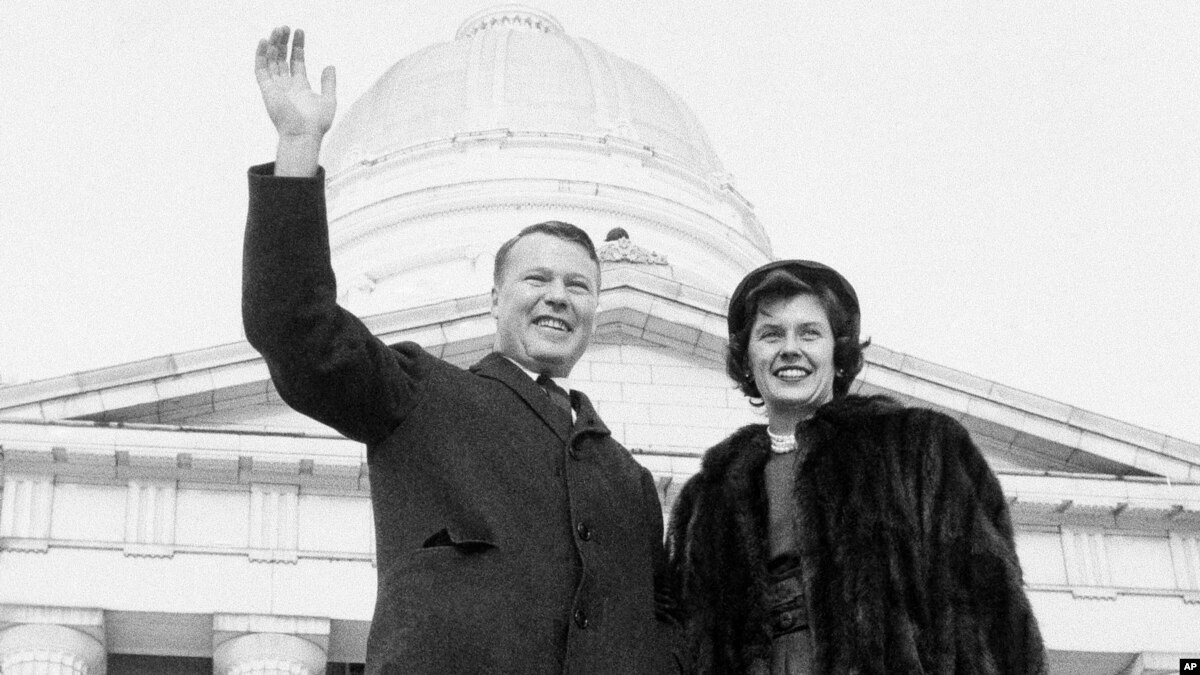
Former Democratic Gov. Philip Hoff, who's credited with starting Vermont's transition from one of the most Republican-entrenched states in the country to one of the most liberal, has died. He was 93.
Hoff, who became the first Democrat elected governor of Vermont in more than 100 years in 1962, died on Thursday, according to The Residence at Shelburne Bay, where he had been living.
"Phil Hoff forever changed the state of Vermont," said Steve Terry, a former journalist who helped write a biography titled "Philip Hoff: How Red Turned Blue in the Green Mountain State." ''His influence in the 1960s has molded and created the Vermont many of us know today."
During his six years in office, Hoff helped start a process that evolved into the state's environmental movement. He focused on reducing pollution and cleaning up the state's rivers and streams.
He also emphasized education reform and helped revamp the state's judicial system.
Hoff's policies helped refocus state government on meeting the needs of residents, a philosophy embraced by his Republican successor, Deane C. Davis.
The office has alternated between Democratic and Republican governors since Hoff was elected.
At the mid-point of the 20th century, Vermont remained one of the most Republican states in the country. The state was dominated by a couple of political families, but Hoff shook up the staid Vermont political structure.
He became governor when the state was under a federal court mandate to reapportion the state House, where each of the state's 241 cities and towns were represented by a single person, no matter the community's population.
"The people of Vermont have clearly said that they don't want to continue with the old ways, and if we fail to respond to forces at work in our society, we face a bleak future," Hoff said at his 1963 inaugural address.
"I loved it any time he came into the office because there was a sense of vibrancy and life," said U.S. Sen. Patrick Leahy, who joined Hoff's Burlington law firm after graduating from law school in 1964. Two years later, Hoff appointed Leahy as Chittenden County state's attorney, a post he held for eight years, until his 1974 election to the U.S. Senate.
"I'd see the governor all the time," Leahy said. "I was the star-struck young lawyer in his office. I'd see people staying in the halls, just waiting to say hi to him. We'd have meetings with him. It was exciting."
Philip Henderson Hoff was born on June 29, 1924, in Turners Falls, Massachusetts. He took time off from Williams College to serve in the Navy during World War II and returned to Williams after the war. He graduated and went on to law school at Cornell University before moving to Burlington in 1951.
Hoff first ran for office in 1958 for a seat on the Burlington Board of Aldermen. He was defeated.
Two years later, he was elected to the Vermont House after running what Terry called "a minimalist campaign." He had no campaign literature of his own and instead handed out brochures promoting the presidential candidacy of U.S. Sen. John F. Kennedy of Massachusetts.
After one term in the Legislature, Hoff won the race for governor in 1962 after he campaigned on the need for change and to end 100 years of one-party rule.
Hoff was briefly considered as a vice presidential candidate in 1968 but withdrew his name when it became clear his friend, Sen. Edmund Muskie of Maine, was being considered. Hoff ran for the U.S. Senate in 1970, but lost to the incumbent GOP Sen. Winston Prouty.
Hoff returned to the Legislature in 1982 after being elected to the state Senate. He served three, two-year terms.
/cloudfront-us-east-1.images.arcpublishing.com/bostonglobe/VNG7YMZTRWJ5WBFTJ5NVETPCQI.jpg)
No comments:
Post a Comment